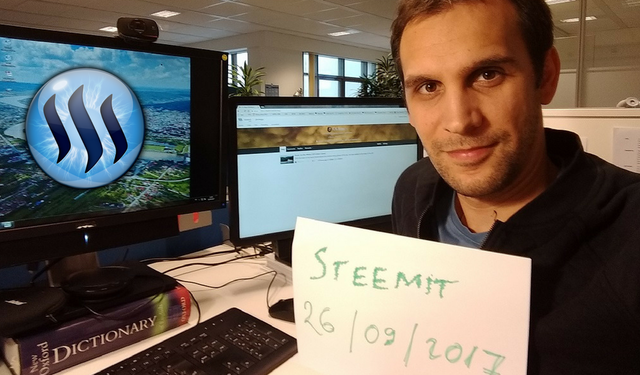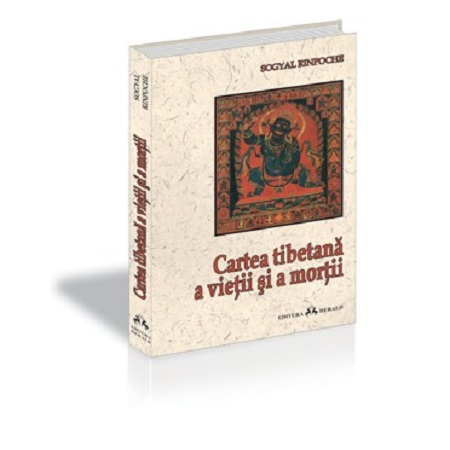Dear Steemit, do you have room for an impertinent post-Communist?

One the evening of the Romanian Revolution I had my first encounter with creative free expression. I was seven and a half, and, while the black-and-white screen was covering dictator Ceausescu’s demise, my father approached me, kneeled, grabbed my shoulders with his palms and said in a solemn tone: “Cipri, now you can say anything you want about the Comrade.”
Needless to say I did not rise to the grand occasion. Between the battles in my living room involving plastic dinosaurs and the construction of snow barracks outside in the condominium courtyard, all I could come up with was: “Ceausescu is a bed wetter.”
.png)
So, since then I had a free reign on the creative front, and when indignant neighbors would sometimes complain to my parents about the filth that came out of my mouth while I was playing outside their window (I was particularly adept at inventing new swears) my mother would mock-chastise me in front of them, while my father would make indignant faces, but after the neighbors left neither one of them would pursue the issue.
This attitude of my parents was the single most important aspect that enabled me to develop as an uninhibited thinker and writer. Later on, when I would come back from school with costly notebooks sporting tens of pages of random maps, invented languages and drawings of various vampire-like monsters they would not get on my case the way the teachers did. Instead, they went along for the ride.
The 90s want their chaos back
Despite all this, and also, despite the fact that my writing compositions were often read in front of class, I had no idea I was the part of the "creative-type" category, nor did I thought there was too much value to my writing. In post-communist Romania it was all about the struggle to make a good living. Consequently, my parents wanted me to become either a computer programmer or a doctor. Suffice it to say I was into neither.
The answer came from my 7th grade Romanian Language and Literature tutor – my own personal Gandalf. After correcting an essay on a reading assignment that I'd turned in late, after the usual scolding she began to question me as to what career options I was considering. I thought Geography or something but I was not sure. Although I liked maps and knew all the world’s capitals by heart – including, as a bonus, all the capitals of the U.S. states – I had recently had an encounter with the boring part of Geography: pie charts of natural resource distribution, land measurement, rock types etc. She suggested Journalism. "You had what it takes to write," she said. For me it sounded great, I had always admired journalists on TV arguing endlessly about various issues, but I wasn’t aware that you could go to university for that. I certainly had the infuriating impertinence of journalists already wrapped up. So, after quite a few dramas at home, I found a degree program offering a double specialization in both Journalism and English.

At University I became more attracted to English than Journalism. After a course in Creative Writing I felt for the first time that this is what I'm supposed to do as a profession. I gained some interest from the British Countil of Romania with a short story I wrote about the tribulations of an Irish single-mother oncologist. But the only writer I knew was this jaded professor, who had quit writing after publishing one or two books – his advice for me was a convoluted “some people can feel things more beautifully inside than they can expressed”. In other words, my writing sucked. Nobody in my “support network” took my writing dreams seriously. And, after a while, neither did I.
Detour into deep stuff
It was 2002, my first summer break as a student. The train from the seaside back to my home town was late, and I was reading for the first time about death.
By my side, on the boarding platform of Constanța Central Station, my Transylvanian friend Paul was blowing smoke into the wind with an air that was annoying the hell out of me – relaxed, no worry in the world, a remote contemplation, I thought. As I was saying, I was reading about death – The Tibetan Book of the Living and Dying by Sogyal Rinpoche. The concepts and stories seemed so foreign to me that I felt for the first time what could qualify as a revelation.

I stop and blurt something interjectional, while my countenance falls on the concreteness of the silvery train tracks and their illusory rendez-vous on the horizon. The train station’s smell of dusty urine begins to shake my metaphysics.
I look towards Paul – after all, it was his book, he told me to buy it for him yesterday from a book stand on the beach, as a birthday present. The blond, tall hippie with contradictory passion for smoking and bodybuilding, was far away, in his clouds of smoke. Who knows what was simmering under that contented Transylvanian broad forehead?
I almost fall from the heights of the revelation, but I get back my bearings. The adrenaline of dealing with death keeps me in place. Let’s see what else these Buddhists are going on about.
How had not seen it before? Death is so simple and so real, that the crêpes flambées I had had that morning at Vama Veche beach paled by comparison. I was at that part where the author discussed the different way the Western and the Buddhist approach death. Here, we ignore it, speaking about it indirectly, using euphemisms and, generally, avoiding the subject with maximum efficiency. There, death is serenely celebrated, people wear bright colors at the funeral, the atmosphere of tragedy is mostly absent. There is little discrepancy between society and the teachings of the wise. And the practice of some Buddhist monks, who are an inspiration for the population, is that every night they leave an empty glass turned upside down by their bed. According to them, there is never a guarantee they would wake up tomorrow morning and need it.
This memento mori perpetually enmeshed in Buddhist culture and philosophy was what shocked me, contrary to what I was used to. As a child, highschooler, student I rarely met with the concept of death aside from reading about it in the papers, and even there it was explored statistically or sensationally. Aside from old poems and other writings that I had to study for school, nobody voluntarily brought it up.
This moment in time was crucial in my development. I could now see the annoying detachment in my friend Paul in a different light. Maybe it was a sign that he understood things about life that I didn’t. He had lost his dad when he was 17. He had dealt with death and so did these monks meditate on it on a regular basis.
The years went on and I got deeper into Buddhist then Vedantic philosophy, coming into contact with many practitioners of these paths. I’m now trying to implement in my life some of these teachings and, as a service to the Indian sages, I volunteered in helping Indian thinker Ashish Dalela develop and promote his writings, bringing ancient knowledge into the present, at the intersection of philosophy, spirituality and science.
Life goes on
So, going back to where I left off, after a graduate degree in communication at a US university, I became an advertising copywriter in Bucharest, Romania. But, secretly I was still dreaming my dream. I wrote dozens of poems, another short story and began to sketch other stories and, eventually, two novels on which I’ve been working for some time.
Seven years ago I left my copywriting position for a less creative post, because I felt it was commercializing my imagination. I also ran away from Romania and moved to Belgium, where I’ve been sitting under 360 days of continuous cloud fronts per year on average and plotting my return to the “old country”under my own terms. I work in the field of PR and communication.
Meanwhile, I married the girl I wanted to be with since high school (but was only able to court after university). And since we’re both sharing the same hometown, our plan is to move there when our son will be ready to start school in a few years.
.png)
I have an indestructible link to this home town of mine. I lived a childhood surrounded by mountains, lakes, rivers, forests, remote monasteries hanging on precipices, camping trips and being chased by shepherd dogs in the Carpathians. This informs a lot of my writings and the mood of mystery, drama going on in beautiful surroundings that I try to bring out.
You can read that in my first ever post on Steemit (Picnic on the White Cliff), which is based on a true story.
Nice to meet you.
Hi, I'm George. Welcome to Steemit. Feel free to interact with people, ask questions where you are confused and make friends. Here in Steemit, we love each other as family.
Thanks, George. This place is amazing -- it feels like the self-publishing resolution 2.0.
Welcome csbegu, hope you will have a great time here on steemit!
Thank you @lopezdacruz!
HI .... I upvoted and commented on your post...I have created a fb page " steemit global community" join us...we will give you all the help needed.
Follow me on @abdullahkhattak...
Thanks for your work as well! Followed. Please follow me
Awesome! You have a fresh account so welcome to steemit. This post deserves an upvote and full steem ahead!
As you are new to steemit and it can be hard for newcomers to boost their steem power so my advice would be to give @MinnowPowerUp a go as you can earn up to 30% more steem power than just powering up! It's a subscription based daily upvote bot that draws its power from a delegation pool. I have more info on my experience with the system in this post where I explain how I earn over $1 a day from upvotes.